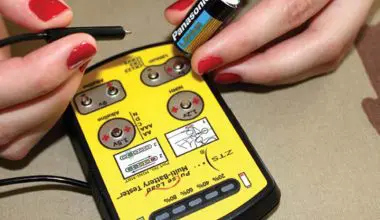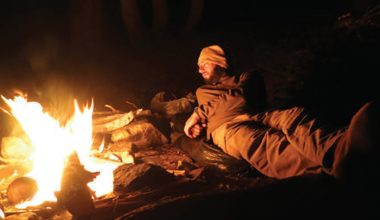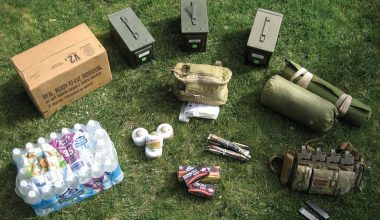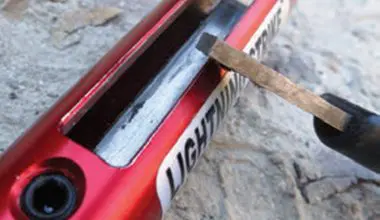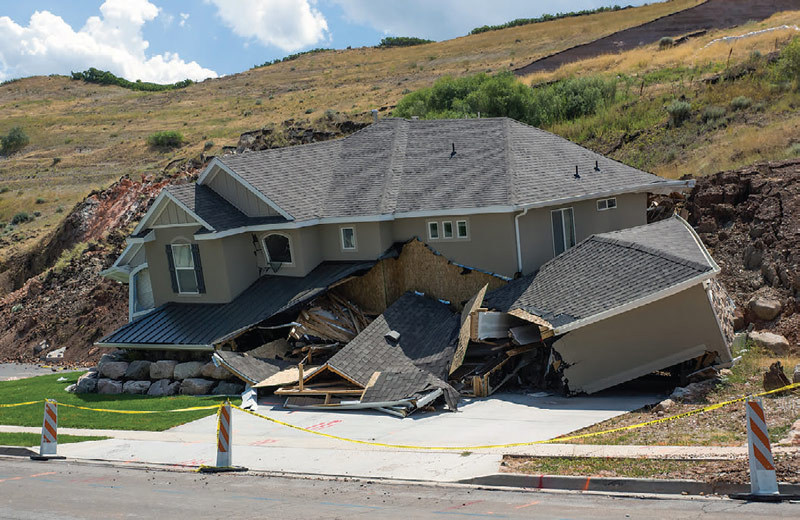 THE (fill in the disaster of choice) has finally passed, but now comes the brutal aftermath. Extensive infrastructure damage includes downed power lines, ruptured water mains, and backed-up sewer pipes. What started out as an ugly situation is getting uglier with every passing moment.
THE (fill in the disaster of choice) has finally passed, but now comes the brutal aftermath. Extensive infrastructure damage includes downed power lines, ruptured water mains, and backed-up sewer pipes. What started out as an ugly situation is getting uglier with every passing moment.
In your neck of the woods, the electricity is out, the water faucets are bone dry, and the toilets stopped flushing days ago. Utility trucks and disaster recovery crews are coming and going, but none are stopping in your neighborhood.
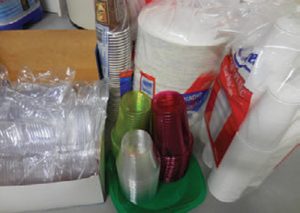
There’s no doubt the cavalry will eventually arrive, but when? In the meantime, a number of in-your-face problems require immediate attention and resolution.
In the “plus” column, you’ve got food, water, first aid, and your security and self-defense preparations are all on-point. But the garbage is piling up, and the human waste that is normally flushed away by a hidden system of underground pipes and pumping stations is accumulating. It’s all becoming a very big problem—and it’s only been a few days.
In a grid-down situation, the spread of germs and bacteria and the lack of proper sanitation and hygiene can kill just as easily as the lack of food and water.
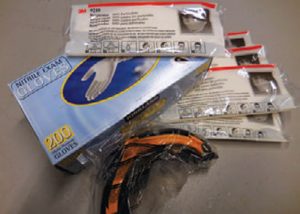
Let’s take an unflinching look at basic survival sanitation and hygiene, placing special emphasis on planning and preparation. We also offer tips, ideas, and suggestions to help you manage waste, human and otherwise. Finally, we provide a list of essential supplies for keeping your surroundings clean and sanitary when the water stops running.
Table of Contents
SANITATION AND HYGIENE BASICS
Have you made any specific plans for the type of scenario described above? If you haven’t, you’re not alone. Although the topic of sanitation/hygiene is pretty straightforward, it’s one of the most commonly neglected preparations.
In a nutshell, it’s all about the correct handling and disposal of trash and human waste, keeping a clean living environment, and observing basic personal hygiene to minimize the potential spread of germs, bacteria, contamination, and disease. It’s that simple!
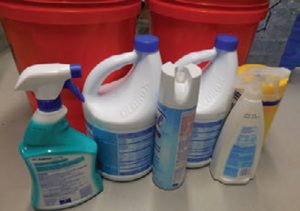
Why then are sanitation and hygiene almost always an afterthought? And why do so many people either fail to plan properly or just completely ignore the topic until that difficult moment arrives?
One possible reason is that many people have never had to live without running water, electricity, or a functioning sewer or septic system, and they have no idea what to do or how to do it. Another reason may be that sanitation/hygiene is not a fun topic. Whatever the reason, in the aftermath of a crisis, keeping a clean and sanitary environment is crucial to your health and wellbeing.
WHERE TO START
- Have a sustainable plan and supplies for getting rid of human waste and garbage.
-
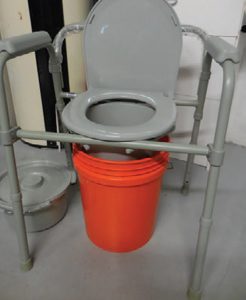
A portable commode is an easy way to quickly and efficiently set up an improvised toilet. Use a five-gallon bucket for large capacity and easier disposal. Commode folds flat when not in use. Have supplies and the skills necessary for staying clean with small amounts of water.
- Maintain sufficient disposable products for the long term, including paper and plastic plates, cups, and utensils.
- Keep generous supplies of toilet paper, paper towels, and napkins.
- Learn how to wash hands with a minimal amount of disinfected water. You will use these techniques often, especially after using the toilet or attending to a sick person.
- Have various methods and the necessary gear for disinfecting suspect water. (All suspect water must be disinfected before it can be used to drink, cook or wash with. In a survival situation, all water is suspect until it has been disinfected.)
- Make preparations to store disinfected water in a clean, covered, clearly marked container, away from possible contaminates.
- Maintain a good supply of heavy-duty plastic trash bags to dispose of waste, diapers, and human waste. Keep garbage containers as far as possible from your food, water, and living areas.
- Have a plan and medical supplies for treating sick members of your group. When treating someone who is ill, always wear protective gloves and masks.
- Plan on no-preparation meals. Heat-and-eat, single-serving meals eliminate the need for pots, pans, and cooking. Calorie-dense, shelf-stable foods that require little if any preparation work best in this type of situation, and minimize cleanup and waste.
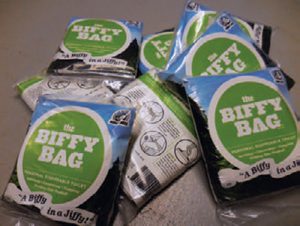
SANITATION SUPPLIES
Having knowledge and skills is important in any survival situation, but also having the right supplies helps make your situation much more manageable. These are the basic items you’ll likely need.
Adjust your preparations and supplies to your particular needs and circumstances, and maintain more supplies than you anticipate needing. Lastly, rotate and update your inventory often.
- Five-gallon plastic buckets with sealable lids.
- Funnels and drinking-water-safe containers in various sizes.
- High-capacity water filter(s) with extra elements.
- Manual water pumps.
- Plastic spray bottles in various sizes.
- Unscented household bleach.
- Household cleaning products.
-
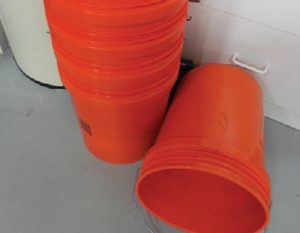
You can never have too many five-gallon buckets. You can buy or sometimes get them used for free at restaurants and supermarkets. From storing water to disposing of waste, five-gallon buckets can’t be beat. Don’t forget the lids. Anti-bacterial gels, wipes, and sanitizers.
- Liquid soap in pump dispensers.
- Disinfection and odor-reducing sprays.
- Toilet paper, paper towels, and napkins.
- Baking soda, white vinegar, and Isopropyl alcohol.
- Nitrile gloves in different sizes and N95 face masks.
- Disposable eye and face shields.
- Heavy-duty garbage bags in various sizes.
- Duct tape and tie wraps.
- Disposable (paper or plastic) plates and cups.
- Disposable plastic utensils.
- Disposable aluminum pans in various sizes.
- Personal hygiene products.
- Pre-moistened wash and baby wipes.
- Diapers and feminine napkins.
- Cat litter, sand, and/or sawdust.
- Personal disposable poop bags.
For eating and drinking, disposables are the only way to go. This will generate more garbage, but it will help conserve your precious water for drinking, cooking, and essential hand and face washing, brushing teeth, etc.
The last thing you want to do with your sanitized water is waste it washing dishes, cups, and utensils. Disposables also help reduce the risk of spreading germs and bacteria among your group members.
WRAP UP
Staying healthy in an environment without clean running water and flushing toilets will always present significant challenges, but with some basic planning and preparation, you can maintain hygiene and sanitation even under the most difficult circumstances.
While help may eventually arrive, you must be prepared to take care of your own needs, at the very least in the short term. Making sanitation and hygiene a survival priority is a great start. Stay safe and be prepared.
